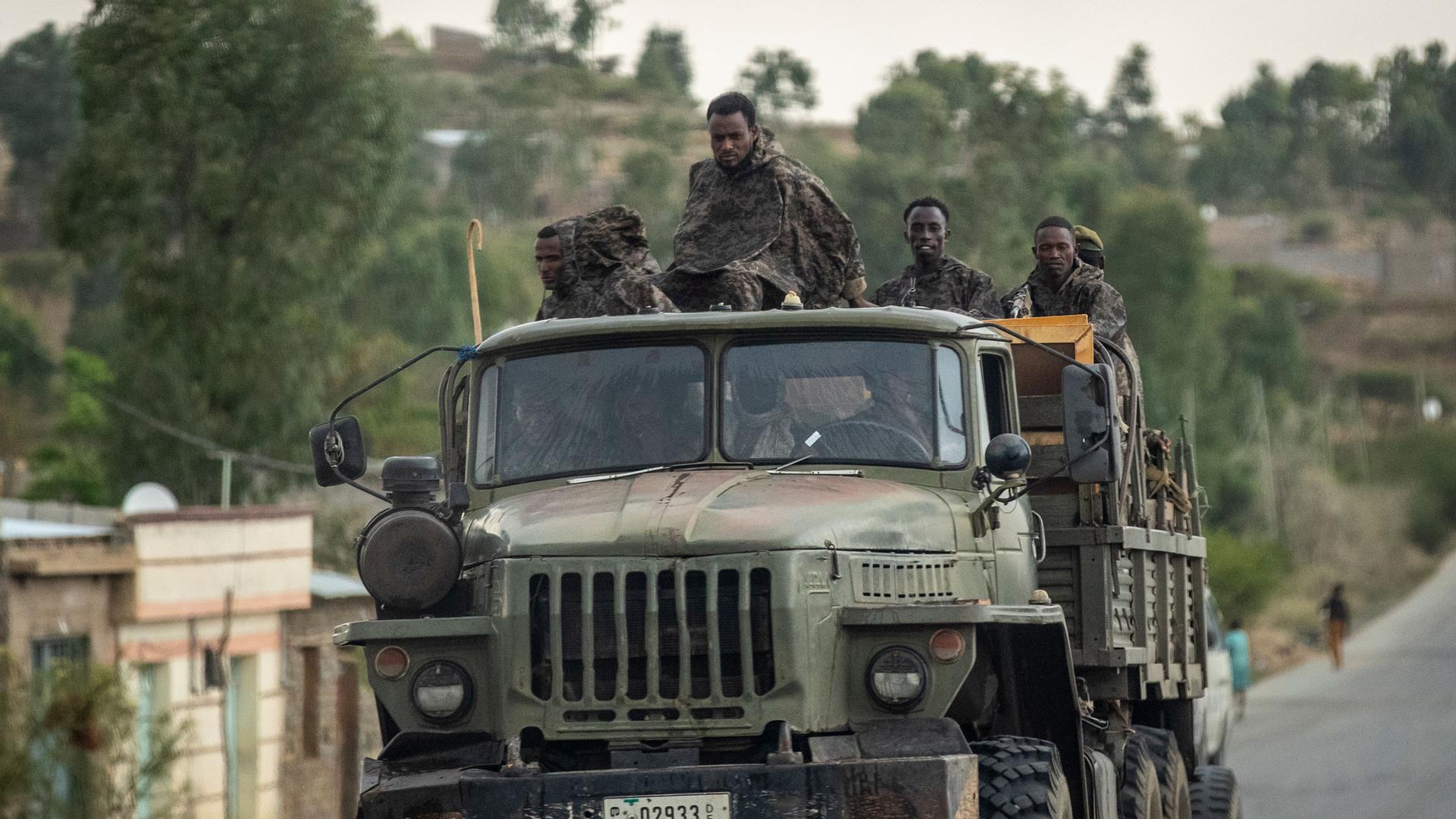Ethiopia’s government says its military will continue its operation to push back the Tigray People’s Liberation Front (TPLF) from the Amhara and Afar regions, capitalizing on gains made in recent weeks.
It’s a big turnabout from last month, when the TPLF said it was marching toward the capital Addis Ababa, prompting many embassies, including the US, to encourage its citizens to leave.
Related: Ethiopian PM begins 2nd term saying war exacts ‘heavy price’
Over the weekend, the TPLF said it would withdraw from the Afar and Amhara regions with hopes of creating a “decisive opening for peace.”
However, the stated withdrawal — like other battlefield movements — is difficult to assess amid communication blackouts and media restrictions.
Still, there are hopes that the new developments could bring an opportunity to end the deadly conflict.
Related: ‘Eritrean forces have to get out of Ethiopia,’ analyst says
Fighting between federal troops and the TPLF broke out last year when the TPLF attacked a federal defense base, following mounting political tensions.
The TPLF led the country for decades before Prime Minister Abiy Ahmed was elected by parliament in 2018.
Thousands of people have been killed, and millions have been displaced by the conflict.
On Friday, the United Nations Human Rights Council passed a resolution that creates an independent international investigation into human rights atrocities in Ethiopia.
“The resolution is a politically motivated instrument that is set to discredit the efforts undertaken prior.”
“The resolution is a politically motivated instrument that is set to discredit the efforts undertaken prior,” critiqued Ethiopia’s press secretary Billene Seyoum, during a press conference on Tuesday.
She suggested it would be redundant, given that the UN recently released a human rights report jointly with the Ethiopian Human Rights Commission.
Despite mounting pressure from Western countries, support remains high for Abiy.
During a recent demonstration at the Ethiopian Embassy in Nairobi, members of the Ethiopian diaspora waved colorful national flags and pro-government signs as patriotic music blared in the background.
“I’m here to show support and solidarity for our government, the Ethiopian people and the prime minister.”
“I’m here to show support and solidarity for our government, the Ethiopian people and the prime minister,” said Abeba Zegeye, an Ethiopian national living in Nairobi with her family.
She hopes Abiy will bring an end to the conflict, and said the new UN resolution was an example of what she sees as Western bias against him.
“We say no more foreign intervention,” Zegeye said.
But Desta Hailesalassie Hagos, a Tigrayan based in Stockholm, disagrees.
For more than a year, Hagos has been documenting the conflict’s toll in Tigray with a media group called Tghat.
They’ve confirmed the names of more than 3,100 people reportedly killed by Ethiopian federal troops and supporting Eritrean soldiers and ethnic militias — including 19 of Hagos’s family members.
“We want these perpetrators to be held accountable. We want also justice to be given for these civilian victims. … I’m very happy [about] what the United Nations Human Rights Council did.”
“We want these perpetrators to be held accountable. We want also justice to be given for these civilian victims,” he said. “I’m very happy [about] what the United Nations Human Rights Council did.”
Related: Ethiopia officials accuse Tigray rebels of massacre as conflict expands
As the fighting expanded, the TPLF has also become implicated in atrocities in the neighboring Amhara and Afar regions.
“This fighting and its expansion has very bad implications for the humanitarian situation [there].”
“This fighting and its expansion has very bad implications for the humanitarian situation [there],” Hone Mandefro of the Amhara Association of America said.
The organization is recording atrocities against ethnic Amhara.
A recent report by Amnesty International accused TPLF fighters of committing sexual violence against women in Nifas Mewcha, which is also Mandefro’s home area.
“I spent much time interviewing survivors of rape and gender-based violence from this town,” he said.
